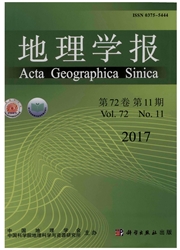

 中文摘要:
中文摘要:
如何在时空制约条件下合理安排个人活动与出行是现代社会中人们日常工作和生活的迫切需求。个人时空可达性研究以个人时空行为视角聚焦个人在时空条件下开展各种活动的自由度,长期以来一直受到人文地理学、社会学和交通工程学等领域的广泛关注。本文基于时间地理学理论,提出一种个人时空可达性方法,顾及活动地点开放时间、最短活动时长及个人活动偏好,实现个人时空可达性分析与评价。然后,利用城市餐饮类服务设施空间位置、营业时间、公众评级等多维时空属性信息及城市路网数据检验方法有效性。本文提出的个人时空可达性方法可为空间规划、时空行为研究提供方法支撑,同时,面向个性化活动地点推荐,可为个人智慧出行提供策略与指导,并且在公众位置信息服务及位置社交网络内容服务等方面具有良好的应用前景。
 英文摘要:
英文摘要:
How to arrange individual travel and activities under various spatial and temporal constraints is an increasingly important challenge to people's daily life in modern society. Based on a person-based perspective, accessibility measures mainly concern the extent of an individual to choose places in order to participate in different activities in space and time. This paper, based on the concepts of time geography, proposes a person-based spatiotemporal accessibility analysis method to measure individual access to urban opportunities in space and time. Specifically, the accessibility is evaluated by the attractiveness of urban service facilities to an individual, meanwhile opening hours of urban service facilities, minimum activity participation time and individual preferences are taken into account as restrictive conditions, to make the accessibility measures more relevant to an individual's desires and situations. Using geographic datasets of spatial locations, open hours and review scores of urban food service facilities and urban road networks, along with a dataset of individual space-time budget and individual preferences, we present this method with a case study of individual accessibility to food service facilities in Beijing, China. This shows how dining out candidates are mined and assessed to derive recommendations for individuals. This study can be useful for applications, such as individual travel-activity guide and location based services.
 同期刊论文项目
同期刊论文项目
 同项目期刊论文
同项目期刊论文
 期刊信息
期刊信息
